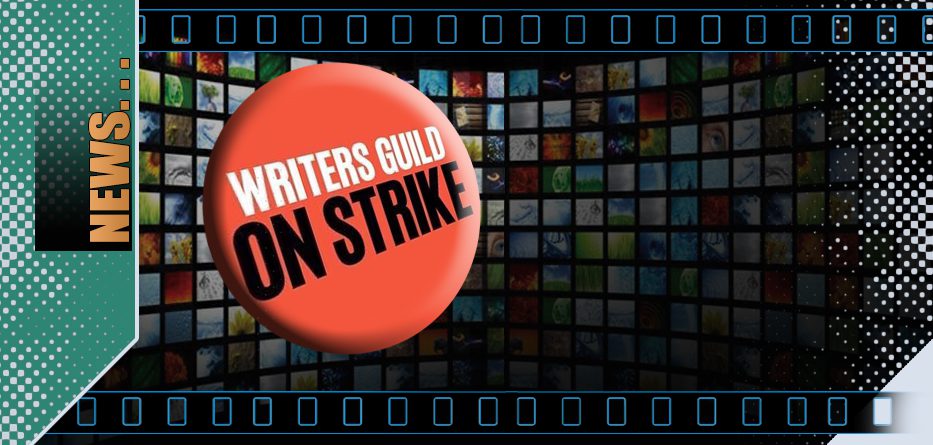The rumours that the Writers’ Guild of America would be striking this summer gained momentum in the last few weeks when it seemed less and less likely the union could find common ground with the industry mover and shakers… and as of Tuesday that threat has moved into a reality that will start to have immediate and potentially long-term effects thereafter.
There are several reasons that the WGA are striking from today, ending the current version of their contract with the Alliance of Motion Picture and Television Producers. The main issues are regarding the compensation for writers in a rapidly evolving entertainment sphere. Where years ago it was clearly delineated between television and film, we now have cable, streaming, podcasts and other formats that aren’t always legally-covered (or compensated) in the same way. Some seasons are now being much devised as much shorter with little job security. Members have talked of situations where small writers’ rooms have hired notable talents to map out season and episode arcs, only to fire them and hire ‘cheaper’ staff thereafter. Connected with this is the issue of residuals, the amount writers get paid thereafter, depending on how their shows are rerun or syndicated in perpetuity. (For example, some deals made with writers in the 1970s and 1980s could not have foreseen the internet and streaming, but does that mean writers shouldn’t get the same residuals as network reruns?).
The WGA also wants clarity on AI technology. In recent months, the generation of AI-created imagery has become a hot-button issue and the same could be true if AI starts turning out scripts (which may not be an issue yet – though some releases certainly feel generic enough – but could very much be a talking-point in the years to come with things like Chat GPT becoming notable for faking exam papers.
The studios, streamers and networks, on their side of the equation, say that they want to make their productions cost-effective in the changing landscape and are arguing that they cannot give the WGA everything it wants without some productions being less viable. It would seem, realistically, that each side may have to find compromises, but it’s such a fundamental set of issues with far-reaching consequences that it may be no surprise that the parties have not been able to come to terms so far and may not do so in the immediate future.
Production is likely to continue on scripted shows where those scripts have already been completed and some shows, noting the potential production problem ahead, started production for their upcoming seasons early (Quantum Leap, for example, was already at least four or five episodes in to filming for its 2023-2024 run). International production of HBO‘s House of the Dragon will continue filming its second season in the UK as all scripts were done. The situation largely depends on each production’s costs, format and pragmatic considerations and certainly won’t be true for many shows. Writers such as Neil Gaiman have confirmed they are proud members of the WGA and will abide by designated strike action. (Gaiman noted that work on the upcoming Good Omens 2 has already been completed, but he may not take part in publicity if the strike continues). In the 2000s, a WGA strike went on for months with a massive swathe of the ‘new’ season’s shows being late and limited in episode number and that could happen again. Feature films could be affected, depending on their start-dates, finish-dates and current state of production. Ironically, there are several titles set for later this year that were previously delayed by COVID.
The most immediate effect will be that episodes of the daily late night talk-shows will now be off the air until further notice with the likes of The Late Show with Stephen Colbert, Jimmy Kimmel Live! and The Tonight Show Starring Jimmy Fallon, all showing reruns. Future editions of their weekly counterparts (Real Time with Bill Maher and Last Week Tonight with John Oliver and next weekend’s Saturday Night Live) are also ‘going dark’ and stopping any new editions. At time of writing only FOX News‘ Gutfeld! (which isn’t written by WGA writers) will continue as planned, apparently not wishing to show solidarity with their late night counterparts.
Dramas already known to be affected include Cobra Kai, Yellowjackets, Night Court and Abbott Elementary with no more new material and a union ruling of no writers on set.
With major stars and crew on the picket-line showing support for their writers, the WGA says it will enter into negotiations immediately in good faith, but how long will the industrial action last? In an industry still feeling the effects of the COVID shutdown, everyone will want a speedy resolution… but so far there’s little movement.











